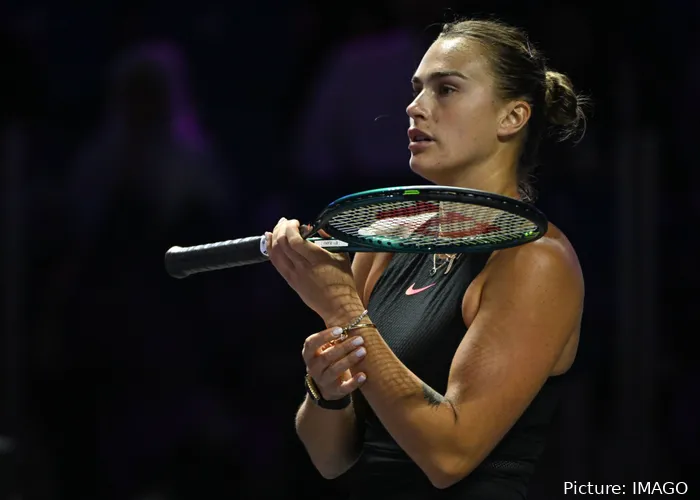
In recent months, the tennis world has been shaken by a series of doping scandals involving high-profile players, leading to intense debates about the integrity of the sport and the effectiveness of its regulatory bodies. World No. 1 Aryna Sabalenka recently addressed these controversies, expressing skepticism about uncovering the complete truth behind such cases and cautioning against premature judgments.
During a press conference in Brisbane, where she is set to participate in the WTA 500 tournament beginning December 27, Sabalenka was questioned about the doping allegations surrounding her peers. She responded, “I just feel like we’ll never know the truth. I mean, people used to overreact at the first minute the big news come out. So, I feel like I don’t want to dig too deep into that case and I really believe in a clean sport. So, I don’t want to comment on that anyhow else.”
One of the most notable cases involves Poland’s Iga Swiatek, a five-time Grand Slam champion, who tested positive for trimetazidine (TMZ) during an out-of-competition drug test in August. Swiatek claimed that the banned substance entered her system through contaminated melatonin, which she was using to address sleep issues. The International Tennis Integrity Agency (ITIA) ruled that there was “No (and No Significant) Fault or Negligence” on Swiatek’s part, resulting in a minimal one-month suspension. This lenient punishment has sparked a divide within the tennis community, with some arguing that it undermines the sport’s commitment to fairness.
Adding to the controversy, Italy’s Jannik Sinner, the men’s World No. 1, failed two drug tests in March, testing positive for clostebol. Sinner’s defense attributed the presence of the banned substance to a cream provided by a member of his coaching staff for injury treatment. The ITIA accepted this explanation, and Sinner avoided any suspension. However, the World Tennis Anti-Doping Agency has appealed this decision, leaving Sinner’s future in the sport uncertain.
More recently, Australian player Max Purcell tested positive for a banned substance and has entered into a voluntary provisional suspension. This decision will see the 26-year-old miss upcoming tournaments, including the Brisbane International and the Australian Open.
These incidents have led to calls for greater transparency and consistency in handling doping cases. Critics argue that the current system allows for discrepancies in punishments, potentially favoring higher-ranked players with access to better legal resources. The lack of uniformity in sanctions has raised concerns about the message it sends to both players and fans regarding the sport’s stance on doping.
Sabalenka’s comments reflect a broader sentiment among players who are wary of jumping to conclusions without full knowledge of the circumstances. Her emphasis on believing in a clean sport underscores the importance of maintaining integrity while acknowledging the complexities involved in doping cases.
The tennis community remains divided on how to address these challenges. Some advocate for stricter penalties to deter potential offenders, while others call for a more nuanced approach that considers individual circumstances. The ongoing debates highlight the need for a comprehensive review of anti-doping policies to ensure they are fair, transparent, and effective in preserving the sport’s integrity.
As the new season approaches, players, officials, and fans alike are keenly observing how these issues will be resolved. The outcomes of pending appeals and the implementation of any policy changes will significantly impact the sport’s future direction. In the meantime, the tennis world continues to grapple with the complexities of maintaining a level playing field in an era where the lines between inadvertent ingestion and intentional doping can often blur.
In conclusion, the recent doping controversies have cast a shadow over professional tennis, prompting introspection and debate about the sport’s commitment to fairness and transparency. Aryna Sabalenka’s measured response serves as a reminder of the importance of withholding judgment until all facts are known, advocating for a balanced approach in addressing such sensitive issues. As the tennis community navigates these challenges, the emphasis remains on upholding the principles of clean competition and ensuring that justice is administered equitably for all players.
For more insights into Aryna Sabalenka’s perspective on Iga Swiatek’s doping suspension, you can watch the following video:
Leave a Reply